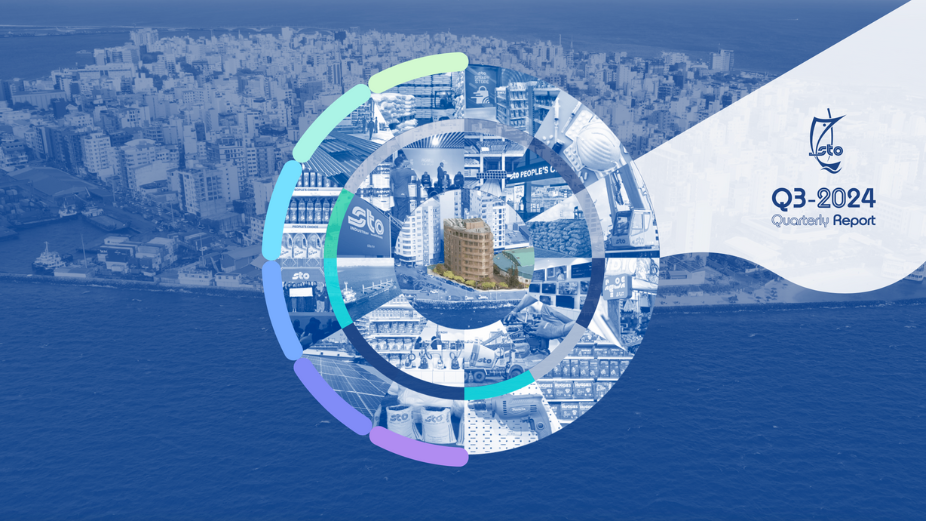
The State Trading Organisation (STO) has reported its financial and operational performance for the third quarter of 2024, detailing notable revenue growth accompanied by rising expenses. Covering the period from July to September 2024, STO’s revenue for the quarter reached MVR 3.58 billion, marking a 3.1% increase from the previous quarter’s MVR 3.47 billion. However, this growth comes amid heightened operational and financial expenses, reflecting a complex financial landscape.
Revenue Driven by Fuel and Non-Fuel Sectors
STO’s revenue mix remains largely weighted towards fuel, which accounted for 80% of total revenue, while the remaining 20% stemmed from non-fuel sectors. As part of its long-term diversification strategy, STO continues to invest in expanding its non-fuel portfolio. The addition of a new pharmacy at Dharumavantha Hospital and increased collaborations, such as the recent agreement with GE Healthcare, reflect STO’s intent to broaden its non-fuel service offerings.
Profitability Under Pressure from Rising Expenses
Despite the rise in revenue, STO’s profitability faced pressure due to escalating expenses, which rose to MVR 365 million, up from MVR 336 million in the second quarter. Although gross profit improved, reaching MVR 591 million, the net profit for Q3 was MVR 156 million, a modest increase from MVR 148 million in Q2. Earnings per share also increased slightly from MVR 131 to MVR 138.
This quarter’s financial indicators highlight ongoing challenges in managing expenses, particularly those related to financing. The Debt Service Coverage Ratio (DSCR) saw a decline to 0.95 from the previous quarter’s 1.48, suggesting increased financial strain. Likewise, cash flow per share fell sharply from MVR 410 to negative MVR 591, marking a significant shift that signals the need for careful cash management.
Strategic Investments and CSR Initiatives
STO’s recent partnership with Vitol to establish bunkering services in Ihavandhippolhu, a key international maritime route, signifies the organisation’s strategy to enhance Maldives’ regional economic footprint. Such initiatives are poised to strengthen STO’s standing in the fuel industry while supporting economic diversification.
In addition to business development, STO has remained active in corporate social responsibility (CSR), with contributions towards infrastructure projects, education, and wellness initiatives across the Maldives. Notably, the organisation’s CSR activities are focused on promoting sustainable cities and communities, and improving healthcare and education access. No single CSR initiative exceeded MVR 100,000, indicating STO’s broad-based, community-oriented approach to support.
Shareholder Engagement and Corporate Governance
In governance, STO upheld transparency standards, as shown by its adherence to the Capital Market Development Authority’s (CMDA) regulations and governance codes. The recent Annual General Meeting approved a dividend of MVR 80 per share and reaffirmed Deloitte as auditors for 2024. Shareholding remains dominated by the Maldivian government, holding approximately 82%, with the remaining 18% publicly held.
Future Outlook and Financial Health
STO’s debt-equity ratio stood at 1.74, reflecting a balanced approach between debt and equity financing, though lower than Q2’s 1.79. The quarter’s developments underscore the need for STO to continue optimising its cost structure and enhancing cash flow resilience. By addressing rising expenses and expanding its non-fuel revenue streams, STO aims to build a more robust financial base to support its long-term goals.
This quarter’s results paint a picture of STO’s ongoing efforts to drive growth, support community engagement, and strategically position itself within both domestic and regional markets.












